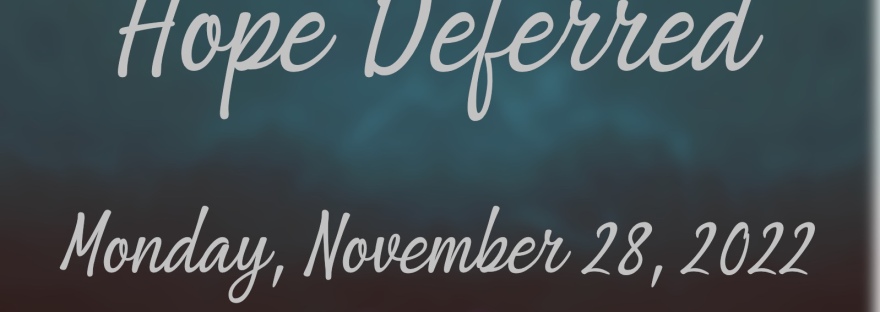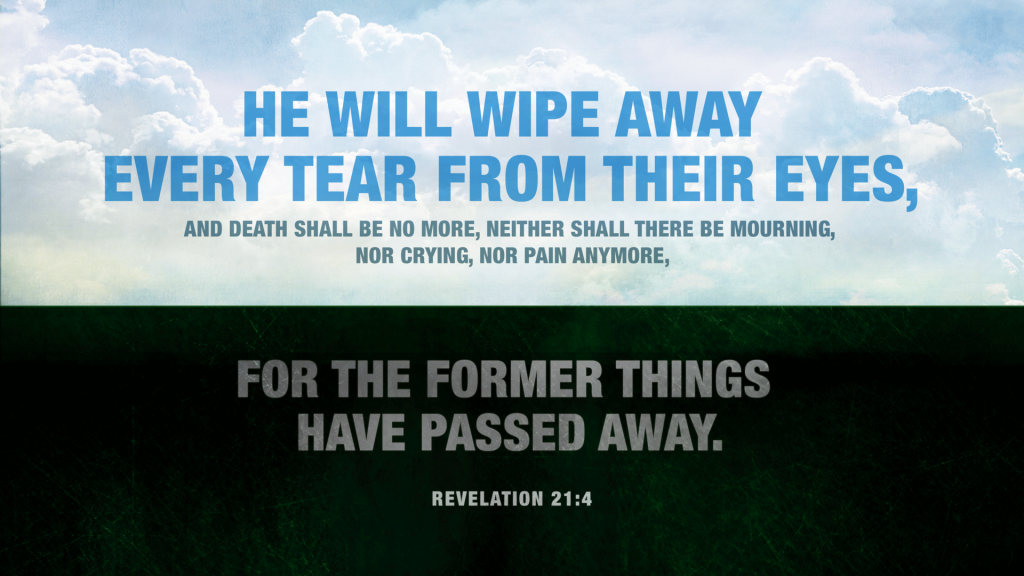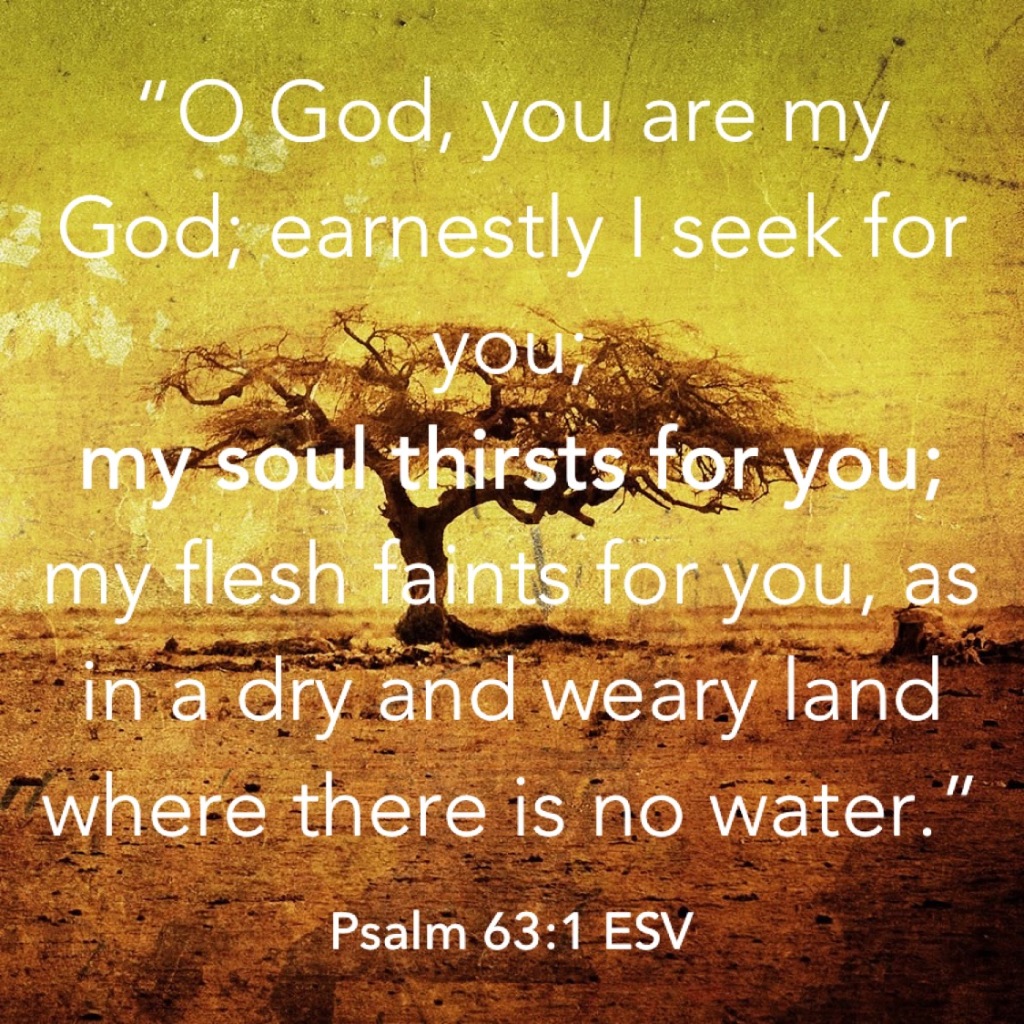
We tend to believe what we see, right? When I was growing up, and maybe this is also accurate for you, I was told, “Believe half of what you hear; believe what you can see.” After all, it’s one thing to question what someone else claims to have experienced, but it’s really hard to argue with what is right in front of you. Our whole lives, we’re trained to respond to what we see before us. “Keep your eye on the ball, son.” “Keep watching for deer!” “Aim carefully.” We’re conditioned from birth to believe what we can see.
It’s one of the most common reasons skeptics question matters of faith. After all, people can claim to sense God all the time, but they can’t see Him. If God cannot be experienced by the 5 senses, how can we know there is a God at all? After all, seeing is believing, right?
Now, a lot of work has been done in the fields of theology and philosophy to demonstrate and, in my opinion, prove the existence of God without primarily relying on the 5 senses. That’s not my purpose here. My concern today isn’t about believing what you cannot see, but rather the danger of believing that which you do see.
We’ve been conditioned to focus on images much more than text. Advertisers know that an image on a website gets a lot more clicks and likes than text alone. We’re driven by the image more than by the text that our brains have to process. Pictures, photos, and graphics grab our fleeting attention spans much faster than fonts and characters. That’s why the most effective way to get a message out on social media isn’t in a video or a story. It’s in a picture.
The problem is that in today’s world, we can doctor images. Remember the whole Kate Middleton Picture fiasco? Before it was revealed that she had cancer, there were so many rumors flying around, everything from “she’s been killed” to “William has had an affair”. This largely occurred because a photo was visibly altered, possibly even entirely fabricated. With the rise of Artificial Intelligence, or AI, we will see much more doctored media as we scroll through our devices. Some of this will be artistic in nature, but much of it will be used to convince people of things that are not true.
We’ve seen so much of this in the past few years in the explosion of conspiracy theories. Images have circulated that supposedly showed Tom Hanks consuming adrenochrome ( a chemical compound that is supposedly used in satanic child sacrifice rituals). We even have a former president selling digital trading cards of himself, doctored by AI to make him look much younger and fitter than he is. “But Adam, it’s artistic license.” By and large, I agree, except when people use those images to claim one candidate is healthier than another.
We really need to question what we see on social media when it comes to Memes. These are often real images that have text superimposed over them. Often the text is used to completely change the context or meaning of the photo; to twist reality.
One instance I won’t forget was during the 2016 election cycle. There was a meme circulating that was a picture of a young Bernie Sanders attending a civil rights protest in the 1960s. The image claimed that Sanders was protesting against African Americans, rather than protesting with them. The claim was quickly debunked here. What frustrated me more than the image was that after the claim was debunked, people clung to what they saw as truth. One lady I followed on social media at the time, when confronted with reality said, “Well, I don’t care what you say. I choose to believe this is the truth because it fits with what I think.” She was so committed to her distaste of Sen. Sanders, that she would willingly embrace a falsehood rather than the truth.
There’s a lot of psychology at play here. A March 2019 article at Scientific American shares how people who believe in conspiracy theories often share certain traits. But why don’t people realize the truth when confronted with it? One answer is quite simple: pride. No one likes admitting they are wrong. Especially after they have staked their reputation and integrity on something they believed to be true. Just like no one likes to admit they miscounted their total at a bake sale, no one likes the idea of coming back around and saying, “Ya know what, even though I was fully convinced, I was wrong.” We don’t want to admit that we were fooled by our senses or that someone took advantage of us. A similar phenomenon is when senior citizens fall victim to scams and don’t report them because they are ashamed that they were victimized.
All this brings me to my most recent run-in with the fakery that is modern social media. Shortly after the horrific collapse of the Francis Scott Key Bridge in Baltimore, I saw this graphic floating around on Facebook and X (FKA Twitter):

The author of the post and image wants you to believe that some cabal or deep-state conspiracy, or maybe even a foreign actor, is trying to destroy our infrastructure. And man, three bridges in one day? That seems like a lot at first glance. Then if you consider the economic impact of closing the Port of Baltimore is something like $150 Million per day, this sounds absolutely catastrophic!
But then I did a little digging. Did you know that in the United States, there are an estimated 600K bridges? Yes, that’s right: six hundred thousand bridges. I’m kind of surprised there weren’t more of them not working that day!
The graphic says “major” bridges. So, let’s consider “major”. What does that mean? The Baltimore Bridge had an estimated 11.5 million vehicles cross each year, carrying a major interstate near our nation’s capital. Definitely a major bridge! But what about the other two? The Valley View bridge carries Interstate 480 in Cleveland over the Cuyahoga River and several roads and train tracks. It carries an estimated 18K vehicles per day, so certainly major. But guess what? It didn’t collapse. A truck caught fire on a road beneath the bridge, so it was temporarily closed out of caution. So, major yes. The same? Definitely not. You can cross the Valley View Bridge today with no problems, besides Cleveland traffic, that is.
That brings us to our final bridge of the day: the Indian River Inlet Bridge in Delaware. What disaster befell this bridge? The ocean breached a sand dune in front of two lanes, closing them while they removed the sand from the lanes of traffic. Clearly a scheme by the deep state (sarcasm, I promise.) And this isn’t what I’d consider a major bridge, although I couldn’t find traffic numbers to back that up (I base my assumption on the size of the bridge and that it isn’t on an interstate or major freight route).
So what I am saying is this: Don’t believe the memes and graphics shared on social media. Check sources. Do your own research. And please, for the love of all things sacred, quit considering watching YouTube or scrolling social media to be doing research! To quote the prophet Hosea, “My people are destroyed for lack of knowledge; because you have rejected knowledge, I reject you from being a priest to me. And since you have forgotten the law of your God, I also will forget your children” (Hosea 4:6).
Before we dismiss for the day, this may beg the question from skeptics, “Adam, what makes ‘faith’ or religion any different from people making up stories or memes or people believing something that isn’t true?”
Good question! According to Hebrews 11:1, faith is “the assurance of things hoped for, the conviction of things not seen.” How is that different? Faith, at least the Christian understanding of it, is a firm conviction based on evidence already presented, not a fairytale make-believe. It’s not, as that lady put it, “something I choose to believe” or something I want to be true. We believe that God has already demonstrated His existence and His character through nature, history, and His word. Because we have historical, eyewitness accounts that Jesus rose from the dead, and reliable historical records, we have evidence to base our convictions on. While God cannot be proved using our 5 senses, I do find His existence to be rational and logical based on what I can perceive with my senses and my brain. But this is a different topic for another time.
The truth is worth searching for and fighting for. As a Christian, I believe that all truth is God’s truth. And Jesus said that the truth will set us free. While He was talking about the truth of the Gospel when the concept of truth itself is under attack, so is the Gospel. As a follower of Christ, I believe in truth, and that Christ is the way to know all truth. Today, trust in Him, more than what you see on the internet.













































































































